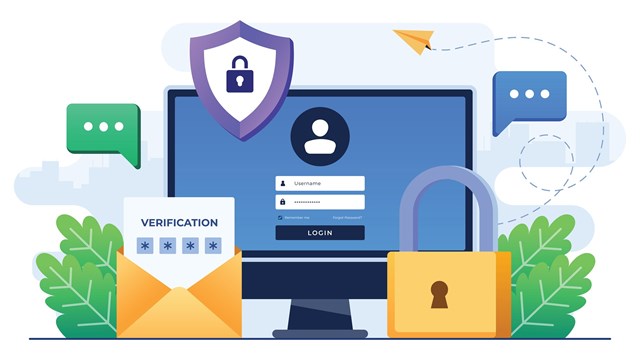
The issue of intellectual property and an individual’s right to privacy has become a greater concern since more and more people conduct their lives online—whether for banking, social media or dating. While the aforementioned generally have security features encrypted in programming platforms, there remain justifiable concerns as to what is actually protected. This heightened sense of scrutiny results in ancillary privacy concerns, especially for those living in community associations.
Whether it is the installation of security cameras, insider criminal activity or environmental health concerns, both boards and residents have to be aware of state laws and governing documents. Cases of privacy intrusion happen from coast to coast. Last year, for example, a Florida family living in a penthouse suite sued its condominium association for cell phone towers that were installed on their roof without permission causing loud noises and health risks. In Hawaii, a security guard was arrested for copying residents’ keys and stealing credit card and banking information.
Understanding Privacy
One of the perks of living in a condominium or townhome community is that it offers residents the ability to build credit and have control of their home without the headaches of funding and maintaining a single-family home. But shared community living does possess certain restrictions and questions regarding privacy are always at the top of the list. “The issue of privacy encompasses many different areas in community association living, from access to personal information, to access to units (in a condominium), to security guards and surveillance cameras,” explains Michael E. Chapnick, managing partner of Chapnick Community Association Law, PA in Delray Beach.
While residents may think that their unit and information is off limits to members of the board and management, this is not always the case. “While multifamily residential settings have many benefits, including community stability/security and the efficient operation and maintenance of the property, there are many compromises that must be made,” explains attorney Michael S. Bender of Kaye Bender Rembaum, a law firm in Pompano Beach. “Specifically, individual owners must give up a certain degree of freedom and privacy which they might otherwise enjoy in a home that is not bound by the recorded covenants governing the property, the Florida Statutes and the rules and regulations of the association.”
“A condominium association also has the right to enter private units under certain circumstances. Section 718.111(5), Florida Statutes, provides that the association has the irrevocable right of access to each unit during reasonable hours, when necessary for certain maintenance related duties or when necessary to prevent damage to the common elements or to a unit,” explains attorney Rosa de la Camara of the law firm of Becker & Poliakoff in Coral Gables. To do so, many associations require that residents provide a copy of their keys in case their unit needs to be accessed during a time they are not available.
Bender adds, “regarding privacy, by statute, other owners have the ability to inspect and copy certain information regarding an owner” that may otherwise be considered “private.” For instance, an owner in a condominium, cooperative, and a homeowners association must recognize that other owners have the ability to inspect and copy owner mailing addresses, voting certificates, account information including the delinquency information of an owner, ballots including for an election, and any email/telephone number/fax number provided to the association to fulfill the association notice requirements, and provided that such owner consents to the disclosure of this information (see 718.111(11) F.S., 719.104(2)(a) F.S., and 720.303(4) F.S.).”
For a board, a gray area exists with regard to privacy when forming (or amending) governing documents to address issues such as determining access to units. “The right of access into a private unit exists under the described circumstances and it is not just for "emergency" situations, thus the board must be very careful to not abuse its authority or to overstep its boundaries. Guidelines and policies should be adopted for instances where the association must gain access to a private home, such as always requiring at least two persons to enter the unit and logging the reason and time for entering the unit. This is for the protection of not only the unit owner but also of the association and its agents who are entering the unit,” de la Camara explains.
Chapnick advises boards and residents familiarize themselves with chapters 718, 719 and 720 in the Florida Statutes that detail what information must be provided pursuant to a records request, and what information is protected from disclosure.
The “Rules” Of Privacy
Knowing resident and association rights when it comes to privacy can be a tough matter to understand. Fortunately, boards and managers can learn how to establish and preserve appropriate rules about confidentiality and privacy in their work on behalf of the building and residents. “First and foremost, boards and managers should contact their legal counsel if they have any questions regarding whether the law prohibits the disclosure of certain information, or whether a desired action by the association would violate the privacy rights of an individual,” Bender says. He states that the following must be kept confidential by boards and managers: any information obtained by the association in connection with the sale or lease of a property, such as background investigations, any medical records of an owner, the social security number/driver’s license number/credit card number of an owner, personnel records of the employees of the association, except for the written employment agreement/financial records that show the compensation paid to an association employee, electronic security measures that are used by the association to safeguard date (i.e., passwords), and any attorney-client privileged information.
Additionally, all boards have a fiduciary duty to residents and the association, meaning it is their legal responsibility to act in their best interests. “For this reason, boards and managers should refrain from posting delinquency reports in common areas, or otherwise discussing personal information of the owners in open forums, like board or membership meetings. In addition to possibly violating the privacy rights of an individual, such action will only serve to improperly place a “target” on such persons in the community and does not serve a bona fide legitimate purpose of the association. Furthermore, if the information posted or discussed is inaccurate, it exposes the association to potential claims of libel, slander or defamation,” Bender says.
Who is Watching Whom?
While it is plausible and common for boards to grant reasonable access to a unit for maintenance reasons, there are issues that can cause trepidation among certain tenants, even if their respective best interests, or that of the community, are guiding the motion. One example is security cameras.
“While video surveillance or security cameras are allowed in common areas, Florida law disallows video surveillance in certain places where there is an expectation of privacy such as bathrooms, changing rooms and locker rooms. However, a unit owner who is neither in his unit nor in the described "private areas" should not have an expectation of privacy and the association may record video images for security over and on the common elements as long as no one individual person is being targeted,” de la Camara says.
Chapnick adds that an association's governing documents will dictate whether community approval is required before installing cameras. In most cases, if surveillance cameras are being considered due to increase in crime or theft and to augment resident's security, the board's consensus may be sufficient.
In some cases, boards might need to transmit resident's information to a third party. What information can be sent and to whom, is circumstantial. “Under Chapter 718 (Condominium Act) and Chapter 720 (for homeowners associations) of the Florida Statutes certain information about owners (such as social security numbers, driver’s license, contact information, to name a few) is protected and may not be released to third parties, unless the owner has consented, in writing, to the disclosure of the protected information or there is a court order compelling such disclosure,” says Bender.
Overstepping Boundaries
As long as boards adhere to state statutes, they are able to make as many security-based or privacy enhancements as desired. While these amendments require a community vote, most often they are done with safety in mind. “People are usually leery of an association trying to place restrictions on their ability to freely use their property. However, association boards are charged with the duty to consider the interests of all of the members. Sometimes, the interests of the community as a whole must outweigh the interests of only a few,” says Chapnick.
However, there are some instances that may cross the line including publicly posting the names of unit owners who hasn’t paid dues. “If a board member improperly discloses information about an owner protected by Chapter 718 (Condominium Act) and Chapter 720 (for homeowners associations) of the Florida Statutes without the owner’s consent, and such disclosure results in the owner sustaining damages, the owner could have a cause of action against the association for among other things, breach of fiduciary duty. If the association is found liable for damages proximately caused by the improper disclosure of protected information, the prevailing owner would also be entitled to seek attorney’s fees incurred by him or her in the lawsuit against the association,” Bender explains.
W. B. King is a freelance writer and a frequent contributor to The South Florida Cooperator. Editorial Assistant Maggie Puniewska contributed to this article.






11 Comments
Leave a Comment